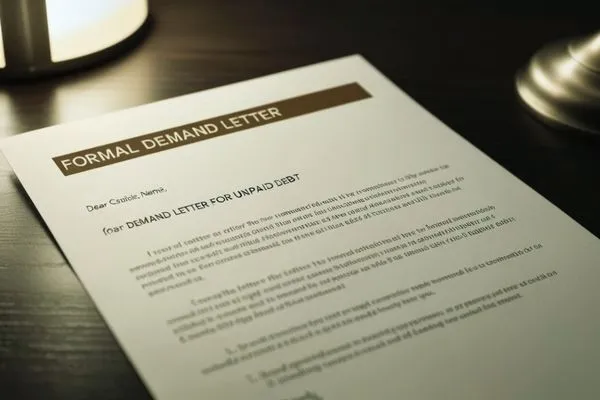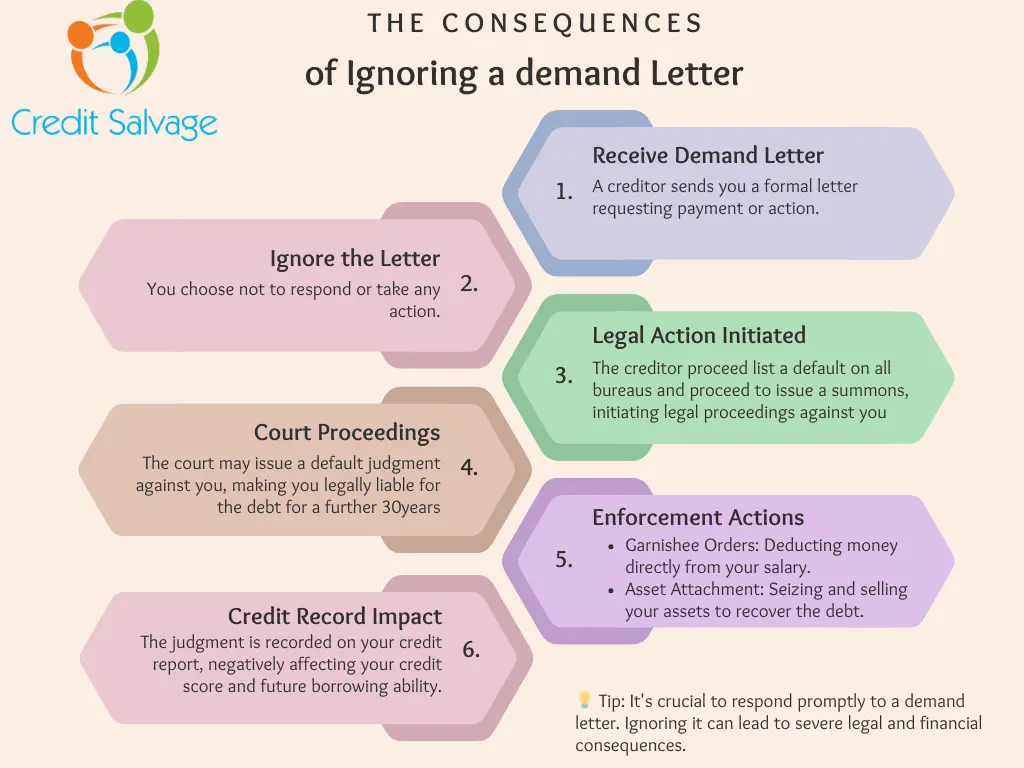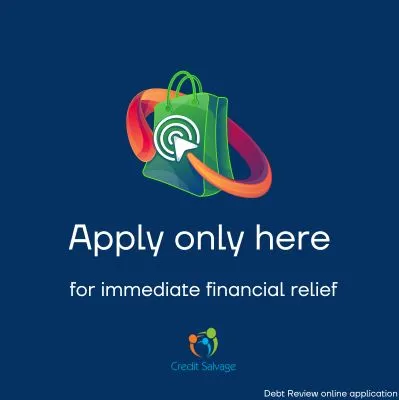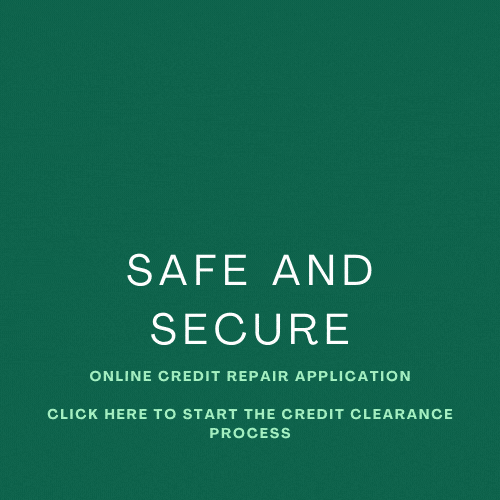Demand Letter - What to Do
Brought to you by Credit Salvage. We are the experts in Debt Review, Debt Review Removal, Credit Clearance, and Consumer Protection
Receiving a demand letter is stressful, especially when you face financial difficulty. These letters mean a creditor is taking steps to collect money you owe. If ignored, the consequences may include legal action, garnishee orders, or judgments.
Here’s the good news: South African law, especially the National Credit Act 34 of 2005 (NCA), protects you. We use these legal protections to help consumers regain control of their finances.
This guide breaks down what a demand letter is. We also outline your rights under the NCA and show you how to act and take back control.
Table of Contents
What Is a Demand Letter?
First Steps Upon Receiving a Demand Letter
Understand the Nature of the Debt
Your Rights Under the National Credit Act (NCA)
What Not to Do
How to Respond to a Demand Letter
How Debt Review with Credit Salvage Protects You
Engaging with Creditors or Attorneys
Settlement and Payment Options
When to Contact Credit Salvage or Legal Experts
Conclusion and Recap
1. What Is a Demand Letter?
A demand letter is a formal notice from a creditor or lawyer that tells you to pay a debt. It usually includes:
The total amount owed,
Reference to the original credit agreement,
A response deadline (usually 7–14 days),
A warning of possible legal action.
💡 Tip: A demand letter is not a court summons. It’s still early in the legal process. You still have time to act. Explore options like debt review or challenge the debt before it escalates.
2. First Steps Upon Receiving a Demand Letter
Getting a demand letter in the mail can feel like a shock but the worst thing you can do is ignore it. The law gives you rights and options, but you need to act fast and smart.
Here’s how to take control from the start:
Read the letter and find out exactly what the creditor wants.
Scrutinise the letter for key details. Who sent it? a creditor, attorney, or collection agency? What are they demanding?
Check the amount they say you owe.
Look for any mention of the original account or agreement.
Spot any threats of legal action or added charges.
💡 Tip: If anything seems unclear or wrong, Credit Salvage can review it with you and explain your next move.
Check the Deadline and Mark Your Calendar
Most demand letters give you a short window—usually 7 to 14 days—to respond or pay. Missing this deadline can lead to a summons or court action.
Set a reminder immediately. The clock starts ticking the day you receive the letter.
🕒 Acting early gives you more options. Once legal action begins, your choices become limited and more costly.
Do Not Ignore It—Silence Can Hurt You
Many people panic and put the letter aside, hoping it goes away. But if you don’t reply, the creditor can:
Take legal action without warning,
Apply for a judgment against you,
Freeze your bank account or attach your salary.
💥 Ignoring the problem gives the creditor all the power. Responding gives it back to you.
Documentation Tip
Always keep a dated copy of the demand letter and every response you send or receive.
Save emails, letters, WhatsApps, and any phone call notes.
This becomes your paper trail if the dispute goes to court or ends up in negotiations.
If you don’t know how to respond or feel stressed, Credit Salvage is here to help. We will look at the letter, check your situation, and show you the best way to handle it. Whether that means disputing the debt, starting debt review, or working out a payment plan.
3. Demand Letter - Understand the Nature of the Debt
a) Is the Debt Valid?
Do you recognise the amount?
Did the creditor hand it over before?
Are fees or interest inflated?
b) Is the Debt Prescribed?
Under the Prescription Act, many debts lapse after 3 years of non-payment. (Exceptions: home loans = 30 years; judgments = 30 years).
💡 Tip: Even a verbal promise to pay or a small "goodwill" payment of R50 can restart the prescription period. Let Credit Salvage assess the debt first.
4. Your Rights Under the National Credit Act (NCA)
The government created the National Credit Act 34 of 2005 (NCA) to protect you from unfair loans. It aims to make borrowing and lending fair in South Africa. It gives you important rights you can use if you're struggling with debt. The Act also helps when you are getting demand letters or facing pressure from creditors.
Here’s what the NCA gives you:
a) Right to Information
You have the right to clear and full information about any credit agreement you’ve entered. This includes:
A full statement of account that shows what you’ve paid and what you still owe,
A copy of the original credit agreement signed by both parties,
A detailed breakdown of any fees, charges, and interest added to your debt.
Creditors must give you this information in plain language. You have the right to understand exactly what the creditor demands you to pay.
💡 Tip: If a creditor refuses to provide this, they may not have the legal right to collect the debt.
b) Protection Against Reckless Lending
The NCA says lenders must check if you can afford the loan before giving you credit. They must assess:
Your income and expenses,
Your ability to meet the monthly repayments,
Whether the new credit will overburden you.
If the lender gave you a loan without checking if you could afford it, the court can call it reckless.
If the court finds the loan was reckless, it may:
Set the agreement aside (you don’t have to repay it),
Suspend the agreement, or
Change the repayment terms.
💡 Tip: If you're drowning in debt, we can investigate if you were a victim of reckless lending.
c) Right to Dispute the Debt
You don’t have to accept a debt because a creditor claims you owe it. Section 111 of the NCA states that you have the right to:
Challenge the debt in writing,
Request proof of the agreement,
Ask for supporting documentation.
Once you send a formal dispute, the creditor must respond within ten business days.
If they don’t, they cannot claim the debt through legal action. This gives you breathing room to seek help or contest the amount.
💡 Tip: We can draft the dispute on your behalf and handle all responses from creditors.
d) Right to Apply for Debt Review
If you’re over-indebted the NCA lets you apply for debt review with a registered debt counsellor.
Debt review helps by:
Restructuring all your debts into one affordable monthly payment,
Reducing interest rates and stopping penalties,
Giving you legal protection from creditors,
Letting you keep your home, car, and income safe.
Once you're under debt review, creditors must stop all legal action and collection. This gives you time to concentrate on your finances.
💡 Tip. Credit Salvage guides you through the entire process as a registered debt counsellor. From the first assessment to final court order.
5. What Not to Do
Common mistakes to avoid:
Don’t admit liability without advice.
Don’t make token payments on prescribed or disputed debts.
Don’t sign new contracts without reviewing them.
💡 Tip: Collectors may pressure you to settle immediately or sign acknowledgments of debt. This weakens your legal defence. Speak to us first.
6. How to Respond to a Demand Letter
Take these steps to protect yourself:
Acknowledge receipt without admitting liability.
Request proof of the debt.
Check for prescription or irregularities.
Contact Credit Salvage for immediate help.
💡 Tip: A formal dispute pauses debt collection and puts the process on hold. Credit providers must supply documents under Section 111.
7. How Debt Review with Credit Salvage Protects You
Debt review is a legal process under the NCA that helps people who have too much debt.
Stops Creditor Harassment
Once you apply for debt review, all creditor contact must go through us (Section 86(4) of the NCA).
Prevents Legal Action
- Section 88(3) of the NCA stops creditors from issuing summonses once you're under debt review.
- Reduces Instalments and Interest
- We negotiate lower monthly instalments and reduced interest. In some instances, as low as 0% on unsecured debt.
Consolidates Debts
You make one payment to a registered Payment Distribution Agency (PDA). Your reduced restructured installment then gets distributed to all creditors.
Results in a Court Order
We get a consent order confirming your repayment plan. This court order will protect you from future legal threats.
Protects Your Home and Vehicle
If you pay according to the court order, creditors can’t take or repossess your home and car assets.
Leads to a Clearance Certificate
When you finish the process, we will issue a Form 19 Clearance Certificate. With this certificate in hand, you can start rebuilding your credit report.
💡 Tip: Apply before legal action starts. Once you enter debt review, creditors lose the right to take further action against you. Timing is everything.
8. Engaging with Creditors or Attorneys
Communicate in Writing
Keep records of all discussions and follow up with emails.
Verify Registration
The law requires debt collectors to register with the Council for Debt Collectors. Attorneys with the Legal Practice Council.
Let Credit Salvage Represent You
We speak the legal language, know your rights, and take the stress off your shoulders.
💡 Tip: If a collector isn’t registered, they have no legal power to recover money from you. We can verify this on your behalf.
9. Settlement and Payment Options
• Lump-Sum Settlements
If you can pay in full, we can negotiate a discounted final settlement.
• Structured Repayment Plans
If full payment isn’t possible, we will negotiate a payment plan that fits your income.
💡 Tip: Don’t accept the first offer. We often negotiate reductions of up to 50% or more.
10. When to Contact Credit Salvage or Legal Experts
Reach out if:
You’ve received a demand letter or summons,
You believe the debt has prescribed.
You’re over-indebted,
You’re unsure of your rights,
Creditors are harassing you.
💡 Tip: Early advice prevents court action and protects your assets. We offer free consultations to check your situation.
11. Conclusion and Recap
A demand letter is not the end—it’s a chance to act. With the NCA on your side and Credit Salvage in your corner, you can protect your rights. We can reduce your debt and rebuild your financial future.
Quick Action Checklist
Use this checklist to take control after receiving a demand letter. Each step helps protect your rights and avoid costly mistakes.
1. Read the Letter and Note the Deadline
Open the letter and scrutinize it. Check who sent it, how much they say you owe, and what they’re demanding. Write down the deadline for response or payment which is usually 7 to 14 days. Missing this deadline can lead to legal action.
🕒 Act early to keep your options open.
2. Do Not Admit Liability or Make Any Payments Yet
Even saying “I’ll pay soon” or making a small payment is admitting the debt. This could restart the prescription period or hurt your case later if you choose to dispute the debt.
💡 Wait until you’ve checked the documents or spoken to Credit Salvage before you reply.
3. Assess Whether the Debt is Valid or Prescribed
Do you recognise the debt? Is the amount correct? Has it been more than 3 years since you made a payment or acknowledged the debt? If so, the law may classify the debt as prescribed. This means it has expired under the law.
📜 We can check this for you and help you raise a defense if needed.
4. Request Proof of the Debt in Writing
Ask the creditor or collector for:
A copy of the original credit agreement,
A full statement of account,
A breakdown of interest, fees, and charges.
This is your legal right under Section 111 of the National Credit Act.
📧 Always request this in writing and keep a copy of your message.
5. Avoid Verbal or Written Acknowledgments
Don’t agree to anything over the phone or in writing until you completely understand the debt. Even casual words like “I owe that” or “I’ll sort it out” can serve as an acknowledgment of debt in the eyes of the court.
🔇 Stay silent on the debt’s status until you’ve spoken to a professional.
6. Contact Credit Salvage to Discuss Your Options
We’ve helped hundreds of South Africans in your situation. We’ll review your letter, check the details, and give you clear advice based on your rights.
🛡️ We act fast to protect you and stop any unnecessary legal action.
7. Consider Debt Review or Settlement Negotiation
If you’re struggling to pay your debts, we may recommend:
Debt review. Debt review protects you from creditors. This process combines your debts into one affordable payment.
Or a settlement negotiation, where we help you pay a reduced lump sum to close the account.
💪 These options help you regain control. It protects your assets, and helps you move forward with peace of mind.
Need Help Now?
Let Credit Salvage take over the stress.
- Free Debt Assessment
- Registered with the National Credit Regulator
- Experts in Disputes, Settlements & Court Protection
- Trusted, Transparent, Effective
Frequently Asked Questions: Demand Letters & Debt Solutions in South Africa
1. What is a demand letter in South Africa?
A demand letter is a formal notice sent by a creditor. This letter requires you to pay a specific debt. It details the amount you owe, sets a deadline for payment, and warns of legal action if you fail to pay.
2. What should I do if I receive a demand letter?
Read the letter: Understand who it's from and what they're demanding.
Note the deadline: Most demand letters need a response within 7–14 days.
Avoid immediate payments or admissions. Don't acknowledge the debt or make payments without consulting a professional.
Seek help. Contact Credit Salvage to explore your options. This include disputing the debt or applying for debt review
3. Does the National Credit Act protect me?
Yes. The National Credit Act (NCA) safeguards South African consumers from unfair lending practices. It grants rights such as:
Access to detailed account information.
Protection against reckless lending.
The ability to dispute debts.
The option to apply for debt review.
4. Can debt review stop legal action?
Yes. Once you apply for debt review, creditors must stop all legal action against you. This includes home and car repossessions.
5. Can I ignore a demand letter if I dispute the debt?
No. Ignoring a demand letter can lead to serious legal and financial consequences. Here's why it's crucial to respond prompt:
Consequences of Ignoring a Demand Letter
Legal Action. Failing to respond may prompt the creditor to start legal proceedings against you. This can result in a court summons and potential judgment in your absence.
Default Judgment. If you don't defend the summons, the court may grant a default judgment. This document will make you liable for the debt and extra-legal costs.
Asset Seizure. A court judgment can lead to enforcement actions. Actions may include salary garnishment or asset attachment to recover the owed amount.
Credit Impact. If a court issues a judgment against you for unpaid debt, it will appear on your credit report. This will lower your credit score. This can make it difficult to get loans, credit cards, or even rent property. Under the Act, debts resulting from court judgments remain enforceable for 30 years. This means that creditors have a 30-year period to take legal action to recover such debts. This extended period only applies to debts confirmed by court judgments. For other types of unenforced debts, the prescription period is three years. If you're uncertain about the status of a debt contact us. Organizations like us can help you understand your rights about disputing debts. To mitigate the impact, you can pay the debt and request a paid-up letter from the creditor. This document proves you've settled the debt and can help you apply to have the judgment removed. It's crucial to address judgments immediately to prevent long-term financial consequences.
Recommended Actions
Do Not Ignore: Always acknowledge receipt of a demand letter and sort it out.
Seek Legal Advice. Consult with a legal professional to understand your rights and obligations.
Respond. Communicate with the creditor to dispute the debt. If you know the debt, then you may negotiate payment terms.
Document Everything: Keep records of all communications and agreements related to the debt.
Taking immediate and informed action can help you manage the situation. This action will avoid further complications and legal fees.
6. What is reckless lending?
Reckless lending happens when a lender gives you a loan without checking if you can afford to repay it. This includes not assessing your income, expenses, or existing debts. If proven, the court may declare the credit agreement void. This court judgment will relieve you of the obligation to repay the debt.
7. To determine if your debt has prescribed in South Africa, follow these steps:
Under the Prescription Act, many debts become unenforceable after three years of inactivity. You made no payments or acknowledgments during this time. You can refer to this as the "3-year rule." Credit Salvage can assist in determining if your debt has prescribed.
8. What is Section 129 notice?
Section 129 notice is a legal rule under the NCA. The creditor sends this notice to inform you of the default. It also informs you of your rights before taking legal action. If a creditor sends you a demand letter without first issuing a Section 129 notice, they violate the NCA. This procedural misstep can render any later legal actions invalid.
Section 129 of the NCA mandates that creditors must inform consumers of a default. This notice provides options such as seeking debt counselling before initiating legal proceedings.
9. What is a Form 19 Clearance Certificate?
Once you finished with debt review, your debt counsellor issues a Clearance Certificate. This document confirms that you've settled your debts. It then allows you to rebuild your credit profile.
10. How can Credit Salvage assist me?
Credit Salvage specializes in:
Debt review: Restructuring your debts into a single, manageable payment.
Debt Review Removal
Credit clearance: Assisting in removing negative listings from your credit report.
Consumer protection: Ensuring your rights under the NCA are upheld.
Take action Now
If you've received a demand letter and are unsure how to proceed, take action now to protect your financial future. Ignoring such letters can lead to serious consequences, including legal action, garnishee orders, or judgments that may negatively impact your credit score and result in being blacklisted.
Act Now to Regain Control:
Understand Your Rights: Familiarize yourself with the National Credit Act 34 of 2005 (NCA), which offers protections against unfair lending practices.
Seek Professional Assistance: Contact Credit Salvage for expert guidance on debt review, credit clearance, and consumer protection.Credit Salvage
Avoid Further Legal Action: By addressing the demand letter promptly, you can explore options like debt review or disputing the debt before matters escalate.
Apply for Debt Review: Our online debt review application is designed to provide immediate financial relief. By completing the application, you'll initiate a process that can halt creditor harassment, restructure your debts into a single affordable payment, and protect your assets. Our experienced team will guide you through each step, ensuring a smooth and confidential experience.
Apply for Credit Bureau Clearance: If you're looking to improve your credit profile, our credit bureau clearance service can help remove negative listings and judgments. By applying online, you'll take the first step towards restoring your creditworthiness and opening doors to new financial opportunities.
Don't let a demand letter dictate your financial destiny. Reach out to Credit Salvage today to explore your options and take the first step towards financial freedom.




